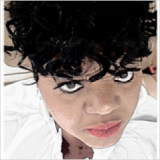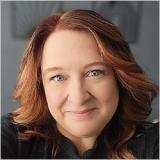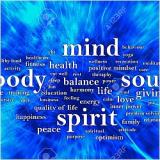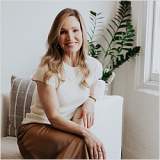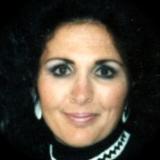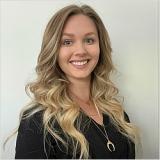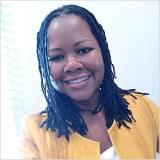Find a Therapist in Wauwatosa, WI
| Prev | Next |
Not finding the right therapist? Search for therapists in Milwaukee, Elm Grove, or Brookfield to expand your search.
Find a Therapist in Wauwatosa, WI
Living in Wauwatosa offers the perfect blend of suburban comfort and urban accessibility, with its tree-lined neighborhoods and proximity to Milwaukee's vibrant downtown. However, like residents throughout Wisconsin, Wauwatosa community members face unique challenges that can impact mental health and well-being.
Whether you're navigating career transitions, managing family dynamics, or dealing with seasonal mood changes during Wisconsin's long winters, professional support can make a meaningful difference in your life.
Since 2007, GoodTherapy has been dedicated to connecting people with ethical, compassionate therapists who prioritize client confidentiality and work to eliminate the stigma surrounding mental health care. We believe all people are capable of change and deserve dignity and respect in their healing journey.
Mental Health Support in Wauwatosa
Wauwatosa residents often seek therapy for anxiety, depression, relationship challenges, work-life balance issues, and trauma recovery. The pressures of balancing professional demands with family life, particularly for those commuting to Milwaukee or managing seasonal affective symptoms during Wisconsin's harsh winters, can contribute to stress and mental health concerns.
Local factors such as the community's strong family-oriented culture and the seasonal variations that define Midwest living create both strengths and challenges for mental wellness. Many residents appreciate having access to therapy services that understand these regional dynamics while providing evidence-based treatment approaches.
Therapy Approaches Available in Wauwatosa
Wauwatosa therapists utilize several proven approaches to help clients achieve their mental health goals. Different types of therapy can address various concerns and personal preferences.
Cognitive Behavioral Therapy (CBT) helps identify and change negative thought patterns, making it particularly effective for anxiety and depression common during Wisconsin's challenging winter months. This approach teaches practical coping strategies for managing daily stressors.
Solution-Focused therapy emphasizes building on existing strengths and resources, appealing to Wauwatosa's resilient community spirit. Psychodynamic therapy explores unconscious patterns and past experiences that may influence current relationships and behaviors.
Dialectical Behavior Therapy (DBT) provides skills for emotional regulation and interpersonal effectiveness, while Interpersonal therapy focuses on improving communication and relationship dynamics.
Specialized Services
Many Wauwatosa therapists offer specialized services including couples counseling, family therapy, trauma treatment, and support for life transitions. Some practitioners provide culturally sensitive care and multilingual services to serve the community's diverse population.
Finding Your Right Therapeutic Match
GoodTherapy's directory helps you find therapists based on your specific needs, preferences, and location within Wauwatosa. You can search by specialty, therapy approach, insurance accepted, and other important factors.
What to Consider in Your Search
Consider factors such as the therapist's specialties, location convenience for your schedule, and whether they accept your insurance. Many Wauwatosa residents also value therapists who understand regional challenges like seasonal mood changes and the unique stressors of Midwest living.
Getting started is straightforward - search our directory to view therapist profiles, read about their approaches, and contact those who seem like a good fit for your needs.
Making Therapy Affordable
Cost concerns shouldn't prevent you from accessing mental health support. Many Wauwatosa therapists accept insurance, offer sliding-scale fees based on income, or provide payment plans to make therapy accessible within your budget.
It's worth contacting therapists directly to discuss financial options. Some practitioners also offer group therapy sessions, which can be more cost-effective while still providing valuable support and connection with others facing similar challenges.
Expanding Your Search
If you're having difficulty finding the right therapist in Wauwatosa, consider expanding your search to nearby areas. The greater Milwaukee metropolitan area offers additional options while maintaining reasonable commute times.
Taking the First Step
Seeking therapy demonstrates strength and self-awareness. Understanding what therapy involves can help ease any concerns about beginning this journey.
Ready to find support? Discover the benefits of therapy and start your search for a qualified therapist in Wauwatosa today. Your path to improved mental health and well-being begins with taking that first step.
Related Resources
- GoodTherapy's directory
- Different types of therapy
- Search our directory
- Understanding what therapy involves
- Discover the benefits of therapy
Find Therapists in Nearby Cities
Frequently Asked Questions
How do I find a therapist near me in Wauwatosa, WI?
Use GoodTherapy's directory to search for licensed therapists in Wauwatosa by specialty, insurance accepted, and therapy approach. You can filter results based on your specific needs and preferences.
What types of therapy are offered in Wauwatosa?
Wauwatosa therapists offer various approaches including Cognitive Behavioral Therapy (CBT), Solution-Focused therapy, Dialectical Behavior Therapy (DBT), Psychodynamic therapy, and Interpersonal therapy, along with specialized services for couples, families, and trauma recovery.
How much does therapy cost in Wauwatosa, WI?
Therapy costs vary, but many Wauwatosa therapists accept insurance, offer sliding-scale fees based on income, or provide payment plans. Contact therapists directly to discuss financial options and find affordable care within your budget.
Can I find therapists who accept insurance in Wauwatosa?
Yes, many licensed therapists in Wauwatosa accept various insurance plans. When searching our directory, you can filter by insurance accepted to find therapists covered by your specific plan.
What mental health issues do therapists in Wauwatosa commonly treat?
Wauwatosa therapists commonly treat anxiety, depression, relationship challenges, work-life balance issues, trauma recovery, seasonal affective disorder, family conflicts, and life transitions. Many offer specialized services for specific concerns.

